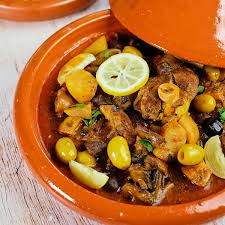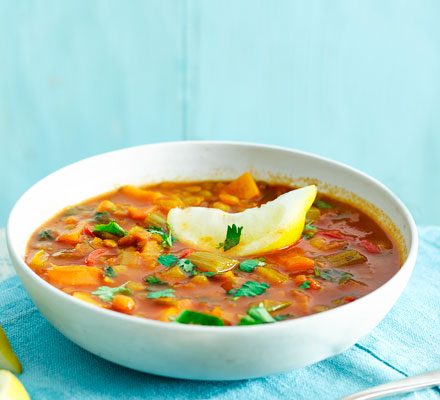The Art of Cooking: Embark on a Culinary Journey with a Cooking Class
Are you ready to tantalise your taste buds and awaken your inner chef? A cooking class is not just about learning recipes; it’s an immersive experience that delves into the heart and soul of a culture through its cuisine. Whether you’re a beginner or a seasoned cook, joining a cooking class can be a transformative journey that enriches both your culinary skills and cultural understanding.
Hands-On Learning
One of the most rewarding aspects of a cooking class is the hands-on experience it offers. Instead of simply following written instructions, you get to touch, smell, and taste the ingredients as you work your way through the recipe. From chopping vegetables to sautéing spices, every step in the cooking process becomes a tactile learning opportunity that enhances your culinary expertise.
Cultural Immersion
Food is an integral part of any culture, reflecting its history, traditions, and values. By taking a cooking class focused on a specific cuisine, you not only learn how to prepare authentic dishes but also gain insight into the cultural significance of each ingredient and cooking technique. It’s like embarking on a gastronomic journey that transports you to distant lands without leaving the kitchen.
Expert Guidance
Most cooking classes are led by experienced chefs or culinary experts who are passionate about sharing their knowledge and skills. Their guidance ensures that you learn proper techniques, understand flavour combinations, and master the art of presentation. Whether it’s perfecting the fold of a dumpling or achieving the ideal caramelisation on a crème brûlée, having an expert mentor by your side can elevate your cooking abilities to new heights.
Social Connection
Cooking classes offer more than just culinary instruction; they also provide an opportunity to connect with like-minded individuals who share your love for food and cooking. Whether you’re collaborating with fellow students to prepare a meal or sharing stories over a communal dining table, these classes foster camaraderie and create lasting friendships based on a shared passion for good food.
Take Your Taste Buds on an Adventure
From mastering the art of sushi rolling in Japan to learning the secrets of pasta-making in Italy, there’s a world of culinary experiences waiting for you in cooking classes around the globe. So why not spice up your next travel itinerary with a cooking class? It’s not just about what’s on the menu—it’s about savouring every moment as you stir, simmer, and savour your way through new flavours and cultures.
Explore Global Flavours: Enhance Culinary Skills with Expert-Led Cooking Classes
- Hands-on learning experience
- Opportunity to explore different cuisines
- Expert guidance from experienced chefs
- Cultural immersion through food
- Social interaction with like-minded individuals
- Enhancement of culinary skills and creativity
Challenges of Cooking Classes: Cost, Time, Space, Skill Gaps, and Ingredient Access
Hands-on learning experience
The hands-on learning experience offered by cooking classes is a valuable pro that allows participants to engage with ingredients, techniques, and recipes in a tactile and immersive way. By actively participating in the cooking process—chopping, stirring, tasting—students not only develop practical culinary skills but also deepen their understanding of flavour profiles and cooking principles. This interactive approach fosters a deeper connection to the food being prepared and enhances the overall learning experience, making it both educational and enjoyable.
Opportunity to explore different cuisines
Embark on a culinary journey like no other with cooking classes that offer the exciting opportunity to explore a diverse range of cuisines from around the world. From mastering the delicate art of sushi in Japan to uncovering the bold flavours of Mexican street food, cooking classes provide a unique platform to expand your palate and immerse yourself in the rich tapestry of global gastronomy. Whether you’re drawn to the aromatic spices of Indian curries or the comforting simplicity of Italian pasta dishes, each class opens up a world of culinary possibilities, allowing you to savour new tastes and techniques that will inspire your own kitchen creations.
Expert guidance from experienced chefs
One of the standout advantages of attending a cooking class is the expert guidance provided by experienced chefs. These culinary professionals bring a wealth of knowledge and skill to the kitchen, offering invaluable insights into proper techniques, flavour combinations, and presentation. Their mentorship not only enhances your cooking abilities but also instils confidence as you learn from the best in the field. With their guidance, you can refine your culinary prowess and elevate your dishes to a whole new level of artistry.
Cultural immersion through food
Exploring cultural immersion through food is a captivating pro of taking a cooking class. Through the culinary lens, participants not only learn how to prepare traditional dishes but also gain a deeper understanding of the history, customs, and values of a particular culture. Ingredients become storytellers, each spice and technique revealing centuries-old traditions and regional influences. By engaging in this sensory experience, individuals can truly connect with a culture in a meaningful way, fostering appreciation and respect for diversity through the universal language of food.
Social interaction with like-minded individuals
One of the standout benefits of attending a cooking class is the opportunity for social interaction with like-minded individuals who share a passion for food and culinary exploration. Engaging with fellow participants not only enhances the overall learning experience but also fosters a sense of camaraderie and connection over a shared love for cooking. From collaborating on recipes to sharing cooking tips and stories, these interactions create a vibrant and supportive community where friendships can flourish amidst the sizzle of pans and aroma of spices.
Enhancement of culinary skills and creativity
Participating in a cooking class offers a wonderful opportunity for individuals to enhance their culinary skills and unleash their creativity in the kitchen. By learning new techniques, experimenting with different ingredients, and exploring diverse flavour profiles, participants can broaden their cooking repertoire and develop a deeper understanding of the art of gastronomy. Through hands-on practice and expert guidance, cooking classes empower individuals to think outside the recipe book, encouraging them to innovate, adapt, and create unique dishes that reflect their personal style and culinary flair.
Costly
Cooking classes can be a costly endeavour, particularly when led by renowned chefs or conducted in prestigious culinary schools. The price tag attached to these high-profile classes may deter budget-conscious individuals from participating, limiting access to valuable culinary knowledge and skills. While the expertise offered by top chefs and institutions is undoubtedly valuable, the steep cost involved can pose a barrier for many aspiring cooks seeking to enhance their culinary abilities. Despite the financial investment required, exploring more affordable alternatives or seeking out scholarships and discounts may help make these enriching cooking experiences more accessible to a wider audience.
Time-consuming
One drawback of cooking classes is their time-consuming nature. Depending on the duration of the class, it may demand a significant time commitment that could pose a challenge for individuals with busy schedules. Finding the time to attend classes regularly and allocate sufficient hours for preparation and cooking sessions can be daunting, especially for those juggling work, family responsibilities, and other commitments. The need to balance the demands of daily life with the desire to enhance culinary skills through cooking classes can sometimes deter individuals from fully immersing themselves in this enriching experience.
Limited space
Limited space can be a significant drawback when it comes to enrolling in cooking classes. With some classes having restricted availability, securing a spot can be a challenge, particularly during peak seasons when demand is high. The frustration of missing out on an opportunity to learn new culinary skills and immerse oneself in a cultural experience due to limited space can be disheartening for aspiring chefs and food enthusiasts alike.
Skill level mismatch
One common drawback of cooking classes is the potential for a skill level mismatch among participants. While some classes may be tailored for beginners, others might assume a certain level of proficiency in the kitchen. This disparity can result in frustration for those who find themselves either struggling to keep up with basic techniques or feeling unchallenged by the content. Beginners may feel overwhelmed by advanced recipes and techniques, while experienced cooks may find themselves bored or unengaged in classes that do not push their culinary boundaries. Finding a class that aligns with your skill level can be crucial in ensuring a rewarding and enriching learning experience.
Ingredient accessibility
One potential drawback of attending a cooking class is the issue of ingredient accessibility. Some classes may call for exotic or hard-to-find ingredients that are not easily sourced from local markets. This can pose a challenge for participants who may struggle to find these specific items, leading to frustration and potential limitations in fully replicating the recipes taught in the class. While exploring new and unique ingredients can be exciting, it’s important for cooking classes to consider the availability of ingredients to ensure that all participants can fully engage in the learning experience without obstacles related to ingredient procurement.




